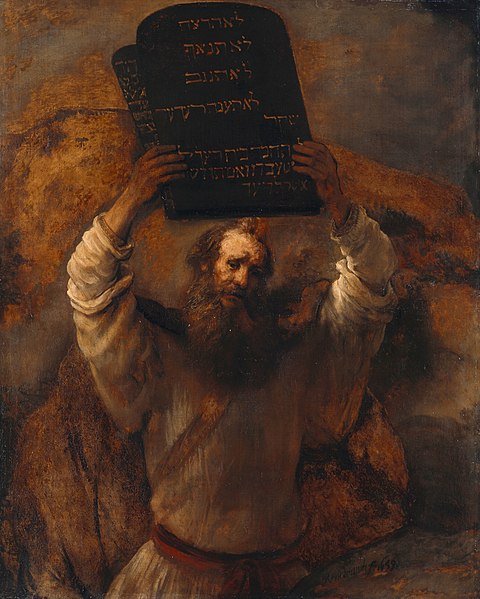Mark 4:26-29
 |
| Vincent van Gogh, The Sower (Sower at Sunset) 1888 (PD) |
Right around the age of ten, I received a chia pet one Christmas.
It wasn’t a special edition chia pet like you see around today, just the standard one, which I guess is a ram or something like that.
It wasn’t my favorite gift that year but out of all the gifts I remember it the most clearly.
I remember it, because like all my Christmas gifts when I was that age, I had to try each one out that afternoon.
It probably wasn’t the best gift idea for a ten year old who was more interested in He-Man than horticulture,
but I still had to give it a shot after my father had finished putting castle Grey Skull together and teaching me new words.
I recall soaking the seeds in water and smearing the mucus-like substance into the grooves of the ceramic animal.
Looking at the box, I was moderately excited to see what this weird critter was going to look like with a big bushy green coating of plant fur all over it.
I was not excited enough to water it though, even though is was placed right next to the sink in the bathroom.
A bathroom that was right next to my bedroom.
I would sleep and rise night and day, splashing a little water on it, but by the end of the day it always looked like a dried up old booger.
It finally got to the point where my mother couldn’t take it anymore and it landed in the garbage.
I was irate when I discovered it had been thrown out, demanding to know why she threw away my prized chia pet.
She only needed to give one answer; “Because it was gross”
I have no idea, to this day what went wrong.
I haven’t had a chia pet since then,
But every time I see one I am reminded of that Christmas gift.
 |
Today’s gospel reminds me of that chia pet too.
Supposedly, all you had to do with the chia pet was soak the pottery critter in water, smear the gross seed slime all over it, then just poor water into the opening, and it would grow.
Seems pretty simple, but I recall the water never seemed to soak through the pottery and watering it like any other plant didn’t help.
So, I ended up just leaving it where it was, on the back of the toilet growing a layer of mold and algae inside, and a crusty layer of complete grody on the outside.
Seems I had better luck growing things inside the chia pet than on the outside of it.
Not exactly how it was advertised, that is for sure!
Jesus seems to be about as versed in growing things as I was with that chia pet.
It’s hard to be anything but skeptical about Jesus’ limited edition “kingdom of God” chia pet.
Sounds like a disaster waiting to happen;
Just scatter the seed on the ground and watch it grow!
No other instructions what-so-ever!
This is probably why this parable we hear in the gospel for today is the only section of Mark’s Gospel that has no equivalent parallel in Luke or Matthew’s accounts.
Out of all the sayings of Jesus, all the ministry he performed, this is the ONLY portion of Mark that you cannot find in either Matthew OR Luke!
Because these are TERRIBLE instructions!
This isn’t how you should grow ANYTHING!
And I’m not just talking about this parable as literal farming instructions either.
Let’s address what Jesus is talking about in this parable; metaphorically speaking.
Jesus is talking about the Word of God, right?
I think most people -even across different faith traditions and different theological leanings- can all agree that the seed as THE Word of God, is what Jesus’ instructions are attempting to illustrate.
The Word is the seed and once that seed is scattered, SHAZAM!
So, how many Pastor’s, Deacons, Bishops, Church consultants and Church growth “experts” do you think walk into struggling congregations slap a bible down in the middle of a table and proclaim,
“Well, there’s your answer!”
The solutions we propose have far more to do with financial planning, revisioning our mission, community outreach, restructuring staffing, committees, councils.
The magic bullets are young pastors, catchier music, tossing the smells and bells out the window.
Unless a study comes out that the ever elusive millennial has been spotted at a more “catholicy” kind of church.
Then we pump our next stewardship campaign into a brand new organ and some gothic stonework wallpaper.
We can all laugh, we can roll our eyes, we can point fingers at all those OTHER folks who do this,
But, if we are honest we have to admit that we ALL do it.
We are all so consumed with growing our numbers, longing for those packed pews and the full offering plates to roll in the door, that we forget who the soil is in this story;
US.
 |
| Photo by Gabriel Jimenez on Unsplash |
The seed is planted in each and every one of us, that is where that seed will germinate and that is where that seed will grow.
Right here and right now.
So the question isn’t how can “we” -the collective WE grow- but how am I -PERSONALLY- growing in faith by the Word of God?
As a pastor, this is something that really and truly weighs heavily on me,
in every Sunday school class I teach, every bible study, and in every sermon I preach.
I struggle with wether or not God’s Word is really reaching those I’m called to serve.
It is why I say a prayer for illumination before every sermon, asking that the words of my mouth and meditations of our hearts be pleasing to God (Psalm 19:14)
A prayer that is itself right out of the psalms.
I don’t say this prayer because I want to get a raise or I am trying to keep everybody happy.
Frankly, if I am preaching the truth of God’s Word, there are some Sundays that there ain’t any of us that are gonna walk out of here happy.
But it is the hope that the seed of the Word is planted in each and every one of us who is listening
And even, sometimes especially, the one who is preaching.
Because even though these are words that my own hands have put on paper,
sometimes I don’t even realize why or how they ended up there or how they will be received.
My prayer is that these words are NOT received with MY best intentions, because my best intentions are never good enough.
My prayer is that God’s Word is received through my flawed lips.
My prayer is that God’s seed is planted, in spite of the unworthy and sinful hands that attempt to scatter that seed.
It eats at me and I struggle with it every single time I step into this pulpit.
But it is also a joy to wrestle with God’s Word, and it is a sincere hope that that same joy can be shared with each and every one of you.
Some days it does feel like a total flop though.
Sometimes when you look out across the congregation and you think,
“Wow, I think every single person in this sanctuary is thinking more about their lunch plans or those donuts in the fellowship hall than the words I am speaking”
Somedays, we know that’s the case.
Its funny, its kinda like being a parent.
How to be a good parent; I’ve talked to my wife about it more times than I can count.
Our biggest fear, is that the seeds we have planted just wont take hold.
We want our kids to grow into faithful people, who love others and God.
But I wont always be able to call them home or drag them to church.
One day they’ll leave and I will only be able to hope and pray that those seeds have taken hold.
Its all I can do as a Dad.
Its all any Father, Mother, or any guardian can hope for,
And I know it doesn’t just eat at me, I know it eats at many of you.
Especially on Father’s day of all days.
But take hope in something that is clearly illustrated in today’s parable.
Again, a parable that ONLY Mark shares.
There is nothing living about the ground, dirt, mud, soil.
There is life in it, but the substance itself, it is NOT alive.
 |
| Photo by Zbysiu Rodak on Unsplash |
Life is found in the seed, and that seed is what gives life to that soil.
We are all soil, lifeless in sin, flawed by unnatural sin that feels so natural to each and every one of us.
But it is the Word that is planted in us that brings forth life.
Just as the seed of Jesus’ broken body is planted in the soil of a lifeless, cold, and empty tomb.
I bet nobody thought life would sprout from that one, did they?
Just as God’s Word is spoken and sown over and into the waters of our baptisms, taking another lifeless substance and bringing forth life from it.
Just as Jesus’ Words are spoken and sown over and into the lifeless bread and wine, bringing forth the real and living presence of Jesus’ body and blood.
If God can bring forth life in all those lifeless things,
than how can we not believe that God brings forth life through the seed of God’s Word into anything,
no matter how hopeless or dead we may think it is.
God’s Word will eventually take root and blossom, bringing forth a new creation and new life, in even the most dead of things.
Thanks be to the God who scatters and sows seed and life across the soil of all of creation, into the lives of all people.
Amen
 |
| Photo by Francesco Gallarotti on Unsplash |





